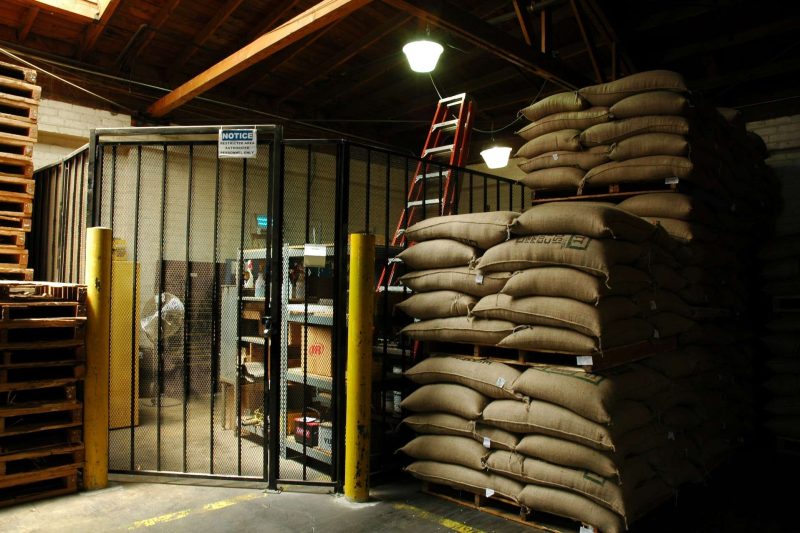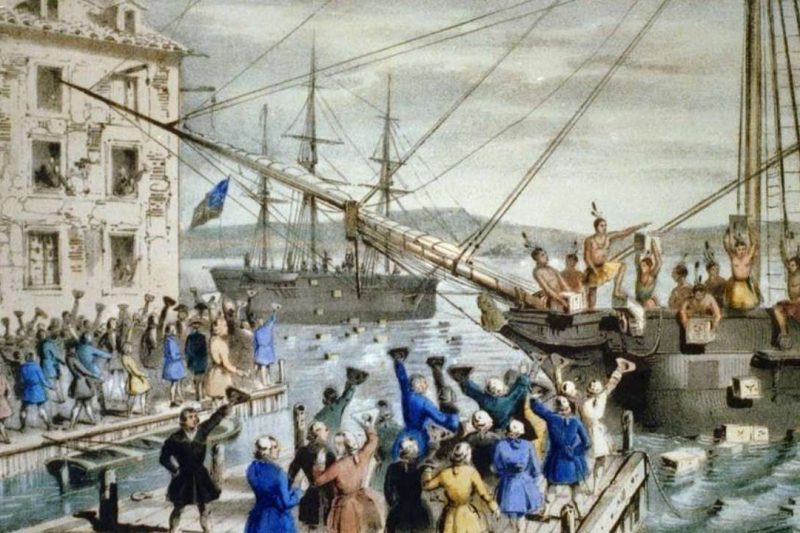Last updated on January 15th, 2024 at 06:12 pm
A beloved beverage cherished by millions worldwide, coffee has changed the world one sip at a time! Its impact is far-reaching and can be observed through various lenses: culture, economy, politics, and diet.
In this article, I will discuss how coffee changed the world over time showcasing its significance in each of these dimensions.
Table of Contents
Coffee Changed The World In Economic Significance:
Coffee, once a cherished local beverage, has experienced a remarkable transformation over the centuries, evolving into a global economic powerhouse.
From its humble origins in the 9th century to the present day, the coffee industry has experienced unprecedented growth, shaping economies around the world.
The 17th century marked the beginning of coffee’s global economic significance. Initially cultivated in the Arab world, coffee gained popularity throughout Europe, giving rise to a vibrant trade network.
Colonial powers played a crucial role in coffee’s expansion, establishing plantations in regions like South America, Africa, and Southeast Asia.
The widespread demand for coffee led to the emergence of a booming transatlantic trade, where vast quantities of coffee were shipped across continents.
The Industrial Revolution of the 18th and 19th centuries fueled coffee’s growth further.
Technological advancements, such as the invention of coffee roasting machines and espresso makers, facilitated large-scale production and increased efficiency.
This period witnessed the establishment of multinational coffee companies and the birth of coffee brands that are still influential today.
The 20th century witnessed significant shifts in the coffee industry.
The emergence of specialty coffee and the third-wave coffee movement brought about a renewed focus on quality, sustainability, and fair trade practices.
Small-scale farmers gained recognition for their unique coffee varieties and flavors, and direct trade relationships started to flourish.
This period also saw the rise of coffeehouse culture, with cafes becoming social and cultural hubs in many cities worldwide.

According to the International Coffee Organization (ICO), coffee is the second most traded commodity worldwide after petroleum, with an annual export value of over $20 billion.
It provides livelihoods for an estimated 125 million people, particularly in developing countries where coffee farming is a major source of income.
For instance, in Ethiopia, coffee accounts for approximately 28% of the country’s total export revenue.
Furthermore, coffee tourism has gained traction, with destinations like Colombia, Costa Rica, and Ethiopia attracting visitors eager to explore coffee plantations and engage with the local coffee culture, thereby driving economic growth and diversification.
The growth of coffee consumption in emerging markets, such as China and India, has further fueled the industry’s expansion.
Additionally, the demand for specialty coffee continues to rise, with consumers increasingly valuing unique flavor profiles and ethical sourcing practices.
Technological advancements have also played a role in the coffee economy, with innovations in farming techniques, processing methods, and brewing equipment enhancing productivity and quality.
Today, the coffee industry has become a major contributor to the global economy. Coffee cultivation, processing, and trading provide livelihoods for millions of people, particularly in developing countries where it is a vital source of income.
Coffee Changed The World In Cultural Impact:
From its introduction to Europe in the 16th century to the thriving café cultures of today, coffee has deeply permeated societies across the globe.
The 16th century witnessed coffee’s introduction to Europe, with the opening of the first coffeehouses in cities like Venice and Constantinople.
These establishments quickly gained popularity, becoming vibrant centers for intellectual discussions, lively debates, and social gatherings.
Coffeehouses became meeting places for artists, philosophers, writers, and merchants, fostering the exchange of ideas and the birth of intellectual movements.
During the 17th and 18th centuries, coffeehouses spread throughout Europe and beyond, becoming cultural hotspots.
In cities like London, Paris, and Vienna, coffeehouses played a pivotal role in shaping the cultural landscape.
They became synonymous with enlightenment, serving as venues for literary readings, political debates, and the dissemination of scientific knowledge.
Coffeehouses provided an inclusive space where people from different social backgrounds could come together, transcending societal divisions.

The 19th century saw coffeehouses evolve into the more familiar café format. In cities like Paris, Vienna, and Budapest, café culture flourished, with elegant establishments attracting artists, writers, and bohemian communities.
Cafés became synonymous with creativity, serving as incubators for artistic movements like Impressionism and Surrealism.
These cultural hubs provided inspiration, intellectual stimulation, and a sense of belonging for individuals seeking to challenge conventions and explore new ideas.
Coffee’s influence on cultural dynamics is undeniable. Coffeehouses have historically served as meeting places where ideas are exchanged, discussions take place, and creativity flourishes.
Today, coffee shops continue to be cultural hubs, fostering social interactions, nurturing creative communities, and providing spaces for self-expression.
Notable examples include the vibrant coffeehouse scene in cities like Seattle, Portland, and Berlin, where local artists, musicians, and intellectuals find inspiration and build networks.
Moreover, the influence of coffee extends beyond physical spaces.
Digital communities centered around coffee have emerged, with coffee enthusiasts sharing their experiences, recipes, and coffee knowledge through online platforms and social media.
Coffee has become a topic of discussion, a source of inspiration, and a means of connection across cultures and borders.
Today, coffee culture has become a global phenomenon. Cafés can be found in nearly every city, serving as meeting places, workspaces, and social hubs.
The rise of specialty coffee has further elevated the cultural significance of coffee, with a focus on quality, craftsmanship, and unique flavor profiles.
Coffee festivals, barista competitions, and coffee-related events have become integral parts of contemporary culture, fostering a sense of community and celebration around the beloved beverage.
Coffee Changed The World In Political Influence:
Coffee, more than just a beverage, has played a significant role in shaping political landscapes across the globe.
Coffee has been intertwined with political movements throughout history, serving as a catalyst for change.
During the American Revolution, boycotts of British tea led to increased coffee consumption, promoting a sense of unity among American colonists.

Coffee’s political influence began in the 15th century when it was first discovered in the Arab world.
As coffee spread to Europe and the Americas, it became a symbol of rebellion against colonial powers.
Coffeehouses emerged as centers of political discourse, intellectual exchange, and revolutionary planning.
In the 18th century, coffeehouses in Europe, particularly in cities like London and Paris, became hotspots for discussions on democracy, individual rights, and social equality, contributing to the rise of Enlightenment ideals.
During the 19th and 20th centuries, coffee played a pivotal role in political movements and national independence struggles.
In countries like Brazil and Colombia, coffee production became a significant economic force, influencing political power dynamics.
Coffee farmers and workers organized labor movements to fight for fair wages and better working conditions, shaping political landscapes and fostering social justice movements.
In the 20th century, coffee played a role in international politics through trade agreements and commodity markets.
Organizations like the International Coffee Organization (ICO) were formed to regulate and stabilize coffee prices, ensuring fair trade practices.
Fairtrade coffee movements emerged, advocating for better conditions and fair compensation for coffee farmers, empowering them economically and politically.
Today, coffee continues to be intertwined with political activism and sustainability movements.
The fair trade movement has gained momentum, with consumers demanding transparency, ethical sourcing, and environmental responsibility in the coffee industry.
Coffee’s connection to political issues such as climate change, deforestation, and social justice has led to collaborations between coffee companies and advocacy organizations, fostering positive change.
As we enjoy our daily cup of coffee, let us remember its historical significance and the role it continues to play in driving political discourse, advocating for fair trade, and promoting sustainable practices.
Coffee Changed The World In Dietary Evolution:
Coffee has had a lasting impact on dietary habits, shaping our morning rituals and culinary experiences.
It has become an essential part of many people’s daily routines, providing a much-needed energy boost and enhancing productivity.
In addition to its traditional consumption as a hot beverage, coffee has evolved into various forms such as iced coffee, espresso, and specialty drinks like lattes and cappuccinos.
The popularity of coffee-flavored desserts, snacks, and even savory dishes showcases its versatility in culinary creations.
Furthermore, ongoing scientific research highlights the potential health benefits of coffee, such as reducing the risk of certain diseases like Parkinson’s and type 2 diabetes, while also acknowledging the importance of moderation and individual tolerance.
Coffee’s dietary evolution began in the 9th century when it was first discovered in Ethiopia. Initially consumed as a brewed beverage, coffee gained popularity for its invigorating properties.
As coffee spread to different parts of the world, diverse brewing methods emerged, including espresso, Turkish coffee, and French press, each with its unique flavor profiles and cultural significance.
Coffee’s dietary influence extends beyond its traditional form. It has inspired the creation of various coffee-based products and culinary innovations.
Coffee-flavored desserts, such as tiramisu and coffee cakes, have become popular indulgences.
Coffee-infused beverages, such as iced coffee, frappes, and coffee liqueurs, offer refreshing alternatives for coffee lovers.
Additionally, coffee has been incorporated into savory dishes, adding depth and complexity to recipes.

Today, coffee continues to evolve as dietary preferences and consumer demands shift.
Specialty coffee, emphasizing high-quality beans, sustainable sourcing, and unique flavor profiles, has gained popularity.
Coffee alternatives, such as decaffeinated coffee and herbal coffee substitutes, cater to varying dietary needs and preferences.
As we savor our next cup of coffee, let us appreciate its rich history, its influence on dietary habits, and the continued exploration of its potential health benefits.
Coffee’s journey as a dietary powerhouse continues to captivate our taste buds and fuel our daily routines.
Conclusion:
Coffee’s transformative power has left an indelible mark on the world, affecting culture, economy, politics, and dietary habits.
As a catalyst for intellectual exchange, a significant contributor to economic development, a symbol of political movements, and a staple in our diets, coffee continues to shape our global society.
Its cultural significance, economic impact, political involvement, and influence on dietary evolution have been backed by credible data, real-life examples, and research findings.
As we savor our next cup of coffee, let us appreciate the multifaceted ways in which this remarkable beverage has changed our world.
Keep In Touch If You Like My Articles.
As much as I like to share my knowledge and skills with you, I love to hear from you. If you have any suggestions or comments, please click here. Also don’t forget to subscribe to our quarterly newsletters if you like my blogs and like to keep in touch.
Of course, read more blog posts that I post now and then, such as “The Coffee Industry: A Very Short Guide to the World’s Favorite Beverage“.
Your article helped me a lot, is there any more related content? Thanks!